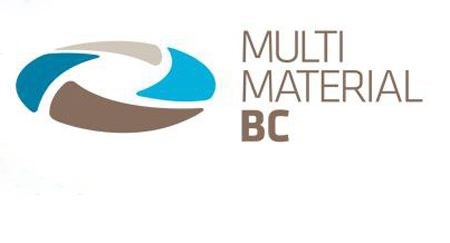An extension of services for the regional district outside of the city boundary will require more businesses to sign on to their program, said the spokesperson for Multi-Material B.C.
Allen Langdon, MMBC managing director, said the organization - representing the businesses responsible for collection of packaging and printed paper under B.C.'s new recycling rules - can't afford to expand beyond what's currently set out for the program right now.
As of September, curbside recycling will begin in Prince George. The city, like the Regional District of Fraser-Fort George, did not sign on with MMBC to become a contractor so the organization put the service out for bid to a private collector. No arrangements were made for collection throughout the rest of the regional district, leaving the local government holding the bag for providing service despite the province mandating it as the responsibility of the producers effective May 19.
"For us to add any more collectors at this point would mean our existing members would be subsidizing businesses that have not yet discharged their obligations," Langdon told members of the board's environment and parks committee Thursday morning. "I'm not sure you should be looking at MMBC to provide a solution, but rather look at the other businesses that have not yet joined or discharged their obligations as to what a solution might be."
MMBC has reached collection agreements with 67 local governments, 13 First Nations and 90 private companies to proving recycling services for roughly 1.25 million households in 88 B.C. communities.
During the morning committee meeting, directors had to decide what to do with a staff report outlining the potential to extend the regional district's multi-material recycling contract with Cascades Recovery for past the May 31 expiration date. Staff recommended adding an extra year to ensure rural residents would still have recycling service. Other options including letting the contract run out at the end of next month, or extending it only until September when curbside collection begins in Prince George.
City directors wanted to drop the hammer and show the province how that the MMBC program wasn't working by applying political pressure in the form of putting a stop to taxpayer-funded recycling.
"I find it extremely discouraging that we are being asked now to charge our residents and our businesses to provide services that are supposed to be provided by MMBC," said Cameron Stolz, who put tried to get support for the option to extend the contract only through September and said that the other options were "morally offensive."
"At the end of the day, when I'm looking at this, we need to be very visible and vocal in what we are standing up for," he said. "Rural communities have been screwed over and over again."
But going down that road would leave those rural communities with nothing in the interim.
"Although I agree with director Stolz that we need to put on political pressure, in the meantime smaller communities like Valemount, Mackenzie and McBride, we then have a big problem on our hands," said Mackenzie mayor Stephanie Killam. "And we don't have the money to be able to do this kind of stuff."
If they went with the year-long extension, that sends the signal that they're okay with the service as provided by MMBC, said Prince George Mayor Shari Green.
"[The B.C. government] is forcing this regional district into a corner, which I don't appreciate," she said.
Stolz's motion was ultimately defeated and the committee passed a recommendation for the year-long extension to the full board.
"It's unacceptable to me that we should be even contemplating this - not recycling in the rural areas just to show them we mean business," said committee chair and Area G director Terry Burgess. "No one wants to throw up their hands and say recycling in the rural area is over. In the end, it's bush league economics we don't have some system in place outside of Prince George that encourages recycling because then the recyclables will end up in the landfill. It's a lose-lose situation."
When the matter was raised again in the afternoon session, Stolz repeated his desire to not extend the contract, which was supported by Green and Dave Wilbur.
The city has stood united with the regional district from the get-go, Green said. Holding off on pursuing their own recycling program when they could have started one before the province changed the regulations.
But that's easy enough for the city to say when they will still receive service via MMBC, whether they wanted it or not, come the fall, Burgess said.
"I think it's crazy to throw up our hands and say 'no, we're not going to do it anymore,'" he said.
"The rural folks need recycling, and that shouldn't be ignored," said chair Art Kaehn.
"We're saying we agree this is unacceptable for the rest of the region," Green clarified. "We need them to feel the pressure and they're not going to feel the pressure if we give them a pass for a year."
No decision was made on the contract, following a motion to postpone until next month's meeting to allow regional district staff to return with further information on the financial implications of the various options.
"A great wave of change is coming," said Valemount mayor Andru McCracken, who noted that conversation with MMBC had been divisive. "As the discussion continues, let's not ask for things that are impossible."



